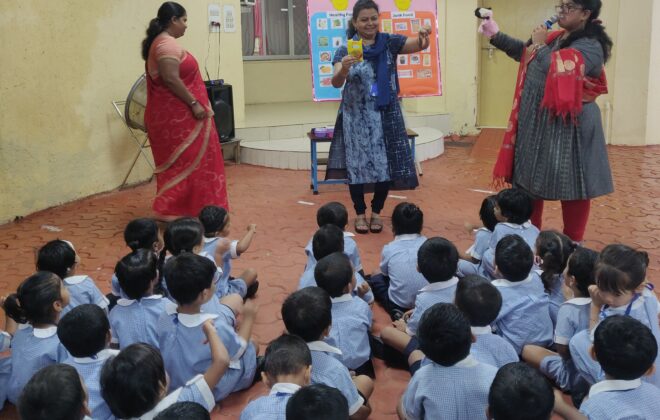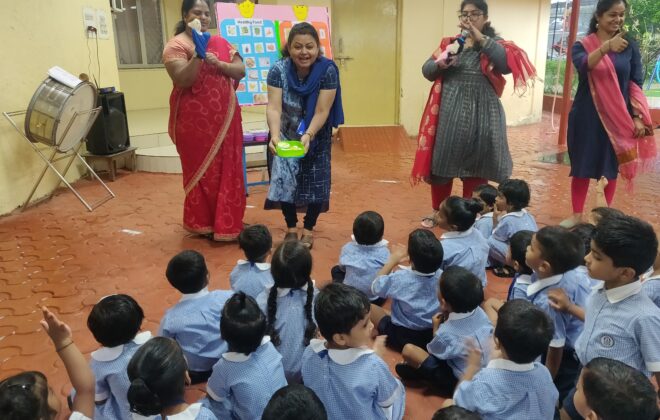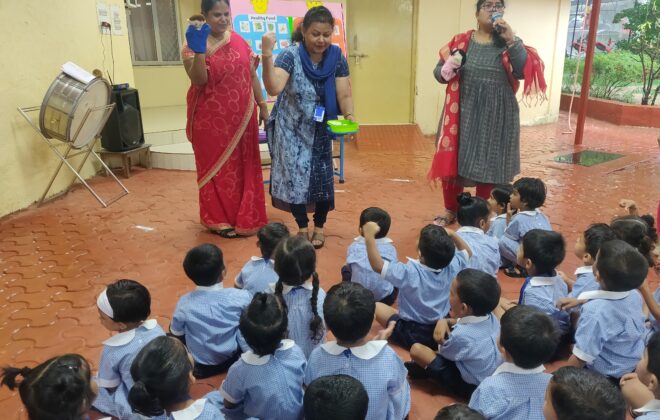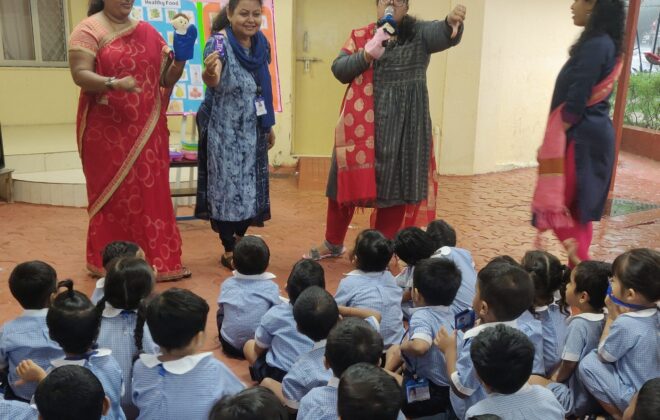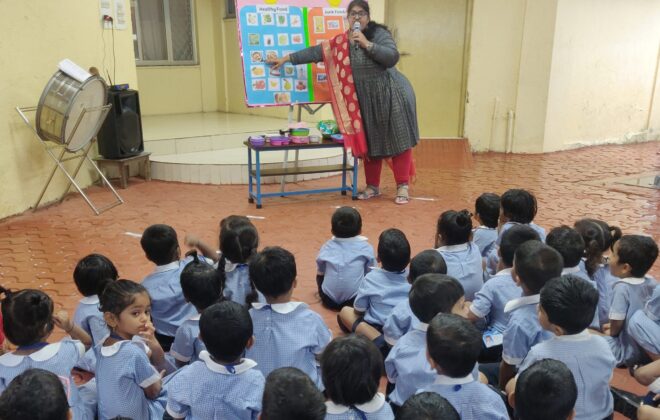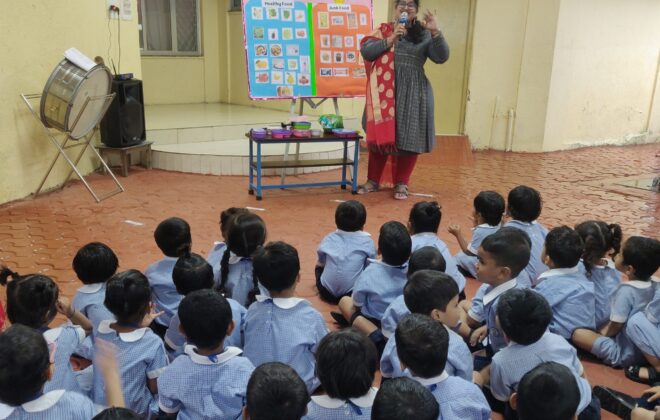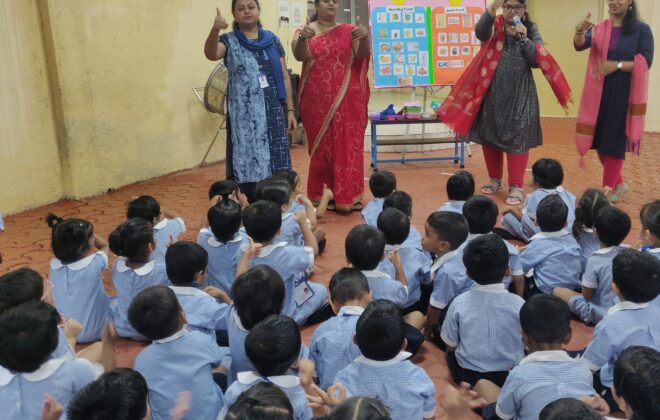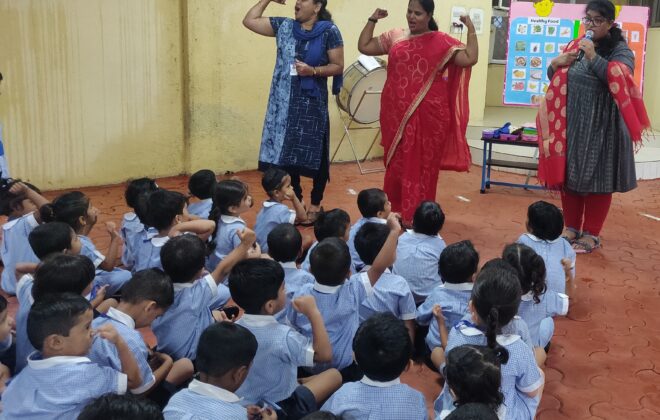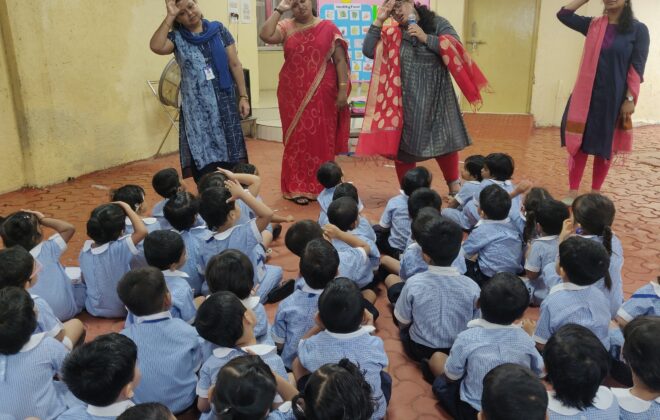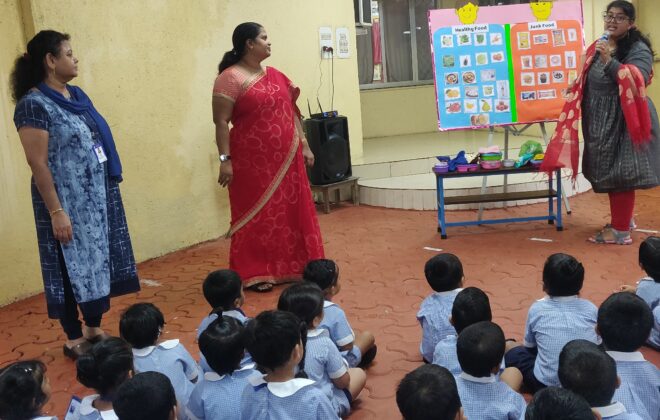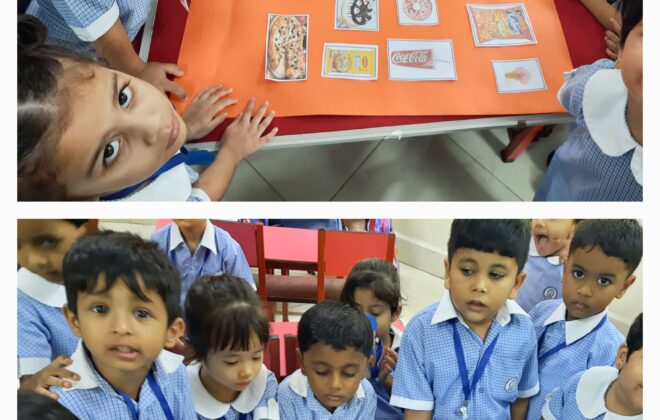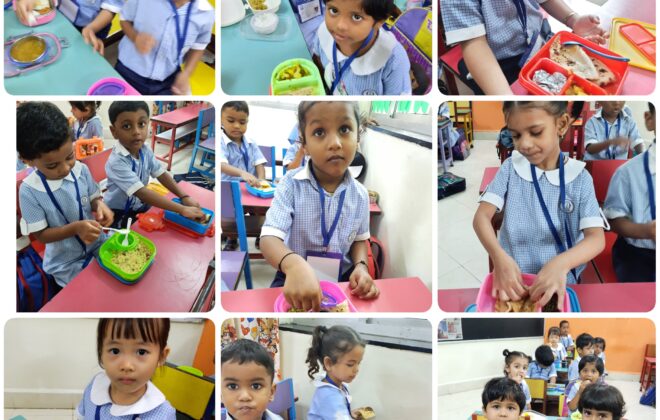Baisakhi Festival Celebration
The festival of Baisakhi is an ancient Hindu festival marking the solar New Year where in farmers thanks the Lord for a successful spring harvest. It is usually celebrated on 13 or 14 April every year as Vishu in Kerala, Puthandu in Tamilnadu, Poila Boisakh in West Bengal, Rongali Bihu in Assam and Baisakhi in Punjab.
At the special morning assembly, children were told about the significance of our farmer community and to express our gratitude towards them for their role in bringing the much needed food and nourishment to our dining table. A boy from LKG D represented the farmer holding a sickle and ripe harvest in his hands to whom we all said “Thank You”.
In the state of Kerala, the festival Vishu is marked as family time. Colourful auspicious items are prepared and traditionally it has to be seen first thing on the Vishu day (Vishukkani). In particular, Malayali seek to view the golden blossom of the Indian Laburnum (KaniKonna).
The Vishu arrangement typically includes the image of Vishnu, typically in the form of Krishna along with yellow or amber coloured fruits like mango, banana, cucumber, jackfruit etc. along with coins and other auspicious items. The family gets up at the crack of dawn, freshen up, and view the Vishukkani set up in the dark room illuminated by the light of the auspicious oil lamp. The day also attracts firework play by children, wearing new clothes and eating a special meal called Sadhya which is a mix of salty, sweet, sour and bitter items. The Vishu scene was depicted at the morning assembly by teachers followed by a traditional dance to the popular malayalam song “Kanikanunerram” performed by children and teachers dressed in traditional attire.
Puthandu in Tamilnadu also marks the traditional New Year and is celebrated in a similar way as Vishu. Home entrances are decorated elaborately with coloured rice powder called kolam.
From the southern parts of India we travelled to the eastern state of West Bengal and welcomed the traditional New Year by greeting Shubho Nabo Borsho. For Bengalis, nabo borsho is the beginning of all business activities by purchasing a new accounting book called Haalkhata. Womenfolk make elaborate alpanas (rice paste rangoli) in front of the house. Goddess Laxmi is worshipped for prosperity and well being. Teachers and children who came dressed in traditional Bengali attire danced to a popular song, “Esho hey Boishakh” welcoming the New Year and celebrating the joyous occasion.
In the neighbouring state of Assam, Rongali Bihu is the Assamese New Year and is the most important festival. Derived from the Sanskrit word Bishu, which means ‘to ask for prosperity from God during the harvest season’, it is a time of joy and feasting and is celebrated for seven days. Men and women dance in traditional Red and off white attire holding the farmers hat called Japi and playing the dhol.
Finally we travelled to the bread basket of India, Punjab, where Baisakhi is celebrated to mark the Sikh New Year and the spring harvest as well. On this day, Gurudwaras are decorated and people gather to socialize and share festive food. Community fairs and processions are held to mark the joyous occasion.
Teachers and children enthusiastically participated and danced to foot tapping beats of Bhangra and welcomed the festival of Baisakhi. In conclusion, the special morning assembly celebrating the spirit of Baisakhi across various parts of India saw the whole hearted involvement and enthusiasm of all teachers and kids and was enjoyed by one and all.
Archives
- October 2024
- September 2024
- August 2024
- July 2024
- June 2024
- May 2024
- April 2024
- March 2024
- February 2024
- January 2024
- December 2023
- November 2023
- October 2023
- September 2023
- August 2023
- July 2023
- June 2023
- May 2023
- April 2023
- March 2023
- February 2023
- January 2023
- December 2022
- November 2022
- October 2022
- September 2022
- August 2022
- July 2022
- June 2022
- May 2022
- April 2022
- February 2022
- January 2022
- December 2021
- November 2021
- October 2021
- September 2021
- August 2021
- July 2021
- June 2021
- April 2021
- February 2021
- January 2021
- December 2020
- November 2020
- October 2020
- February 2020
- January 2020
- December 2019
- November 2019
- October 2019
- September 2019
- August 2019
- July 2019
- June 2019
- April 2019
- March 2019
- January 2019
- December 2018
- July 2018
- June 2018
- May 2018
- April 2018














